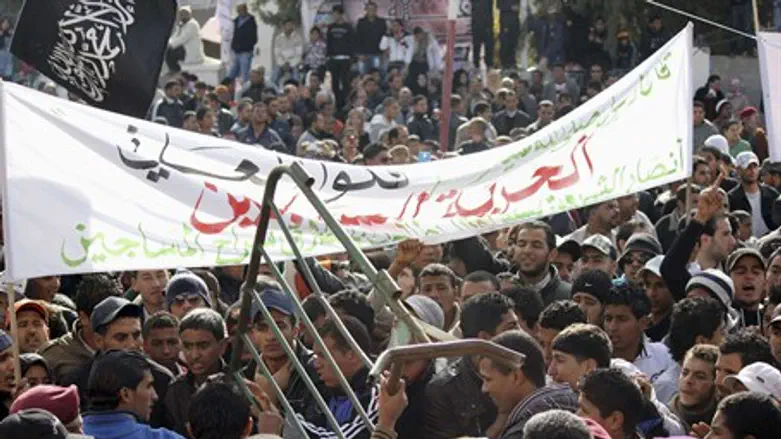
Tunisia's national assembly has approved the country's new constitution, three years after the overthrow of the North African country's long-time ruler Zine el-Abidine Ben Ali, Al-Jazeera reports.
Sunday's vote by an overwhelming majority of assembly members marks another crucial step to getting the democratic transition back on track in the birthplace of the Arab Spring.
The vote came close on the heels of an announcement by Mehdi Jomaa, the prime minister, of a new caretaker cabinet to govern the country until elections.
The new constitution, seen as one of the most progressive in the region, guarantees equal rights for men and women.
It also demands the state to protect the environment and tackle corruption.
Executive power is also divided between the prime minister, who will have the dominant role, and the president, who retains important prerogatives, notably in defense and foreign affairs.
Islam is not mentioned as a source of legislation, although it is recognized as the nation's religion and the state is committed to "prohibiting any attacks on the sacred", while freedom of conscience is guaranteed, noted Al-Jazeera.
While Islamic Sharia law will not be the basis of the constitution, Article 73 of the new plan does demand that the President be exclusively Muslim - as a model of being a good Tunisian citizen.
Al-Jazeera reported that earlier, members of parliament amended three articles in the draft text, before ratifying changes to the rules of the assembly's confidence vote, to facilitate the appointment of the caretaker cabinet which must win parliamentary backing.
In the new government, the report said Hakim Ben Hammouda, an economist with experience at the African Development Bank, will be the finance minister while Mongi Hamdi, a former UN official, will be the foreign minister.
Jomaa, a technocrat, was appointed in December after the ruling Islamist Ennahda party agreed to step down in a deal with secular opponents to end a political crisis.
Tunisia has been roiled by social unrest and political crises since Ben Ali was overthrown. The latest unrest was sparked by the murder in July of Brahmi, which triggered calls for the resignation of the coalition government that was formed by the Islamists.
